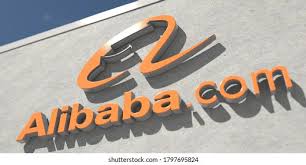
The pace of growth in sales during its annual Singles' Day shopping spree was the slowest for the company in its history, said Alibaba Group Holding Ltd on Friday.
According to analysts, this performance of the Chinese e-retailing giant underscores the severe regulatory challenges being faced by China's digital giants.
Compared to a 26 per cent year on year growth in its sales, or "gross merchandise value" (GMV), during its 11-day Singles' Day event last year, the company managed to generate 540.3 billion yuan ($84.5 billion) in sales during the event which came to an end on Thursday.
There has been double digit growth every year since the company had launched the Singles' Day event back in 2009 which easily surpassed the sales during Cyber Monday in the United States. Last year, the gala was expanded to a multi-day event.
There was an 8.5 per cent growth in the annual Singles' Day shopping even this year of the company which underscored highlighted the strong headwinds being faced by China's tech firms related to regulatory and supply chain issues, said Alibaba Group Holding Ltd on Friday.
The findings come with a slowdown in general consumption in China, resulting in a more subdued version of a sales festival that Alibaba formerly marketed enthusiastically.
Analysts had predicted that Alibaba would only record a tiny gain in GMV this year, citing slower retail sales, supply shortages, power outages, and Covid-19 lockdowns before the sales season began.
The festival, which was expanded to an 11-day event last year with the greatest prices focused in two discount periods, Nov. 1-3 and Nov. 11, has become a carefully followed barometer of consumer mood in the world's second-largest economy.
In the final hours of its Singles' Day festival on Thursday, Alibaba downplayed its sales numbers and emphasized its social welfare efforts, signaling a shift in tone for the widely known event.
Instead of a rolling count monitoring sales, Alibaba asked viewers of a three-hour livestream to click "like" and help donate 1 million yuan ($156,359.90) for a 200-acre (81-hectare) elephant sanctuary in China's rural southwest.
Despite continuous regulatory tightening from Chinese authorities, the e-commerce behemoth has toned down the marketing frenzy, stating that its emphasis this year is on sustainable development.
In past years, Alibaba would use a night-long display of data to promote Chinese customers' appetite for washing machines, cellphones, and cosmetics. This year, however, the event was used to promote initiatives such as a program that helps handicapped people purchase clothing and attempts to utilize more ecologically friendly packaging.
Despite this, millions of merchants and buyers flock to Alibaba's platforms, notably its Taobao and Tmall marketplaces, to take advantage of dazzling discounts and live-streamers peddling anything from skincare to sports shoes.
Nearly 400 businesses, including Apple Inc and L'Oreal SA, have managed to generate revenues of more than $15 million in sales each by mid-day on Thursday, according to Alibaba.
(Source:www.rte.ie)
According to analysts, this performance of the Chinese e-retailing giant underscores the severe regulatory challenges being faced by China's digital giants.
Compared to a 26 per cent year on year growth in its sales, or "gross merchandise value" (GMV), during its 11-day Singles' Day event last year, the company managed to generate 540.3 billion yuan ($84.5 billion) in sales during the event which came to an end on Thursday.
There has been double digit growth every year since the company had launched the Singles' Day event back in 2009 which easily surpassed the sales during Cyber Monday in the United States. Last year, the gala was expanded to a multi-day event.
There was an 8.5 per cent growth in the annual Singles' Day shopping even this year of the company which underscored highlighted the strong headwinds being faced by China's tech firms related to regulatory and supply chain issues, said Alibaba Group Holding Ltd on Friday.
The findings come with a slowdown in general consumption in China, resulting in a more subdued version of a sales festival that Alibaba formerly marketed enthusiastically.
Analysts had predicted that Alibaba would only record a tiny gain in GMV this year, citing slower retail sales, supply shortages, power outages, and Covid-19 lockdowns before the sales season began.
The festival, which was expanded to an 11-day event last year with the greatest prices focused in two discount periods, Nov. 1-3 and Nov. 11, has become a carefully followed barometer of consumer mood in the world's second-largest economy.
In the final hours of its Singles' Day festival on Thursday, Alibaba downplayed its sales numbers and emphasized its social welfare efforts, signaling a shift in tone for the widely known event.
Instead of a rolling count monitoring sales, Alibaba asked viewers of a three-hour livestream to click "like" and help donate 1 million yuan ($156,359.90) for a 200-acre (81-hectare) elephant sanctuary in China's rural southwest.
Despite continuous regulatory tightening from Chinese authorities, the e-commerce behemoth has toned down the marketing frenzy, stating that its emphasis this year is on sustainable development.
In past years, Alibaba would use a night-long display of data to promote Chinese customers' appetite for washing machines, cellphones, and cosmetics. This year, however, the event was used to promote initiatives such as a program that helps handicapped people purchase clothing and attempts to utilize more ecologically friendly packaging.
Despite this, millions of merchants and buyers flock to Alibaba's platforms, notably its Taobao and Tmall marketplaces, to take advantage of dazzling discounts and live-streamers peddling anything from skincare to sports shoes.
Nearly 400 businesses, including Apple Inc and L'Oreal SA, have managed to generate revenues of more than $15 million in sales each by mid-day on Thursday, according to Alibaba.
(Source:www.rte.ie)














